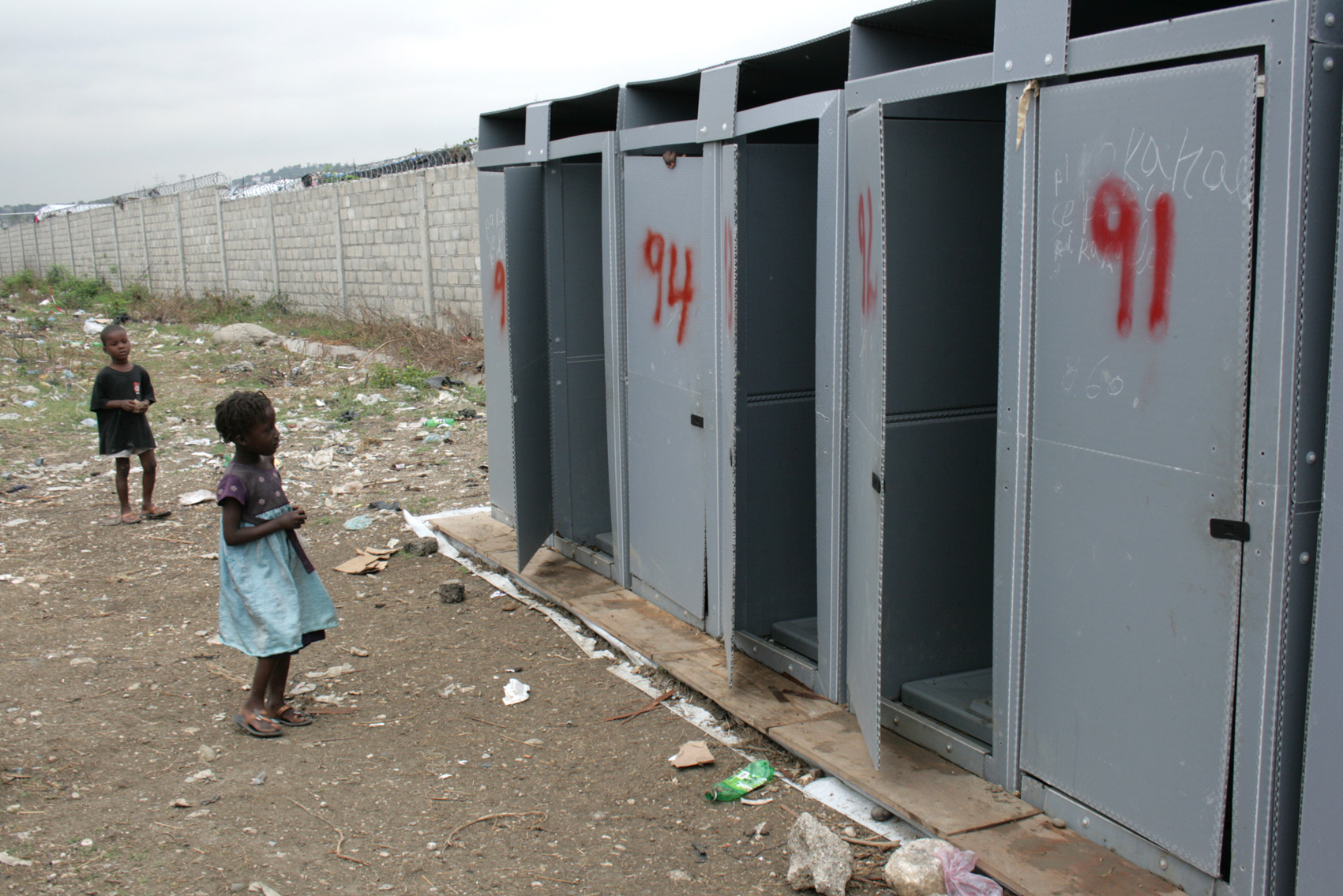Going to the site's latrines is also risky, especially at night, for there is no lighting and some toilets are isolated.
“We have not yet reached a standard of organization that respects women’s rights,” Smith Maximé of the UN Population Fund (UNFPA) in Haiti told IRIN.
“We have registered rape cases that occurred when women were in the latrines. When toilets are not secured – as in many of the camps – women are often attacked there,” he added.
“We are not safe here,” one woman in the Jean-Marie Vincent camp told IRIN, holding her two-month-old baby. “Three men attacked me as I walked to a latrine. They covered my face and my mouth and raped me.” Initially she said nothing but her pain was so intense, after three days she told some relatives.
The failure to meet established minimum disaster relief standards is “creating serious security, privacy and dignity concerns”, according to the Gender in Humanitarian Response Working Group*.
“Increased lighting surrounding those latrines should be an immediate priority to ensure the safety of women and girls using sanitation facilities at night,” the Group said in a statement issued in late February.
“Increased attention must be paid to the provision of dedicated and private bathing facilities to reduce women’s current vulnerability to sexual violence. Though many women and girls bathed outdoors prior to the earthquake, the nature of many IDP sites (crowded living conditions, living near strangers) is creating new vulnerabilities to violence and exploitation, in particular at night, that did not necessarily exist before,” it said.
Crowded and dark
Overcrowding and lack of lighting in camps are part of the problem. In many camps there is no space between tents. Aid organizations and the government plan to move people from 21 of the most congested sites either back home, to host families or to land recently allotted by the authorities. In the meantime aid agencies are putting some security measures in place, such as installing lights.
|
Photo: UN Photo/Marco Dormino  |
| The overcrowding of many camps increases the risk of violence |
The Inter-Agency Standing Committee (IASC), a group of UN and non-UN organizations that since 1992 has worked to harmonize humanitarian best practice, stipulates that humanitarian actors must ensure that the route to water and sanitation facilities is safe and that latrines are well lit and lockable from the inside.
Management
Ribeiro said another major problem was a lack of camp management agencies. As of 4 March just one-fifth of the 400 camps for displaced families had such agencies in place, she said.
“More agencies… need to take over site management,” she told IRIN. “That is the only way to prevent these things from happening. Because no amount of service delivery [medical care, food rations, water] is going to be able to respond to what happens when the sun sets.”
Community watch groups are forming in many sites; OCHA states in a 4 March report that these groups will need training to increase the protection of women and girls.
UNFPA is working with the authorities and local NGOs to revive a system of reporting sexual violence cases. “But our immediate focus is to disseminate information on available medical and psycho-social support, and to [put first] the rights and choices of the survivor,” Lina Abirafeh, GBV coordinator for UNFPA in Haiti, told IRIN.
The agency is compiling a list of hospitals and NGOs that provide medical and counselling services for distribution in the camps.
UN aid workers say no comprehensive statistics of rape in the camps are available but rape and impunity have long been widespread in Haiti, as IASC notes. In 2008 Amnesty International reported “shocking levels” of sexual violence against girls.
np/am/mw
* The group comprises representatives of MINUSTAH-Human Rights, MINUSTAH-Gender Unit, UNIFEM, UNFPA, World Food Programme, IOM, UN Children’s Fund, and several NGOs, including the International Rescue Committee, American Refugee Committee, and International Medical Corps.
This article was produced by IRIN News while it was part of the United Nations Office for the Coordination of Humanitarian Affairs. Please send queries on copyright or liability to the UN. For more information: https://shop.un.org/rights-permissions





